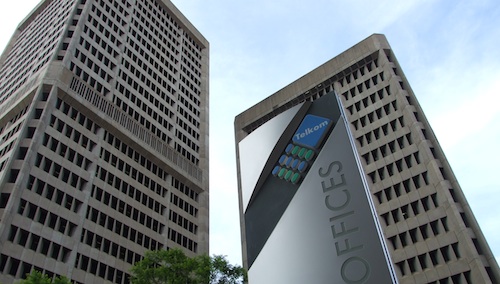
If the Competition Tribunal imposes a large fine on Telkom for anticompetitive behaviour, it will be “catastrophic” for the company and will “irretrievably jeopardise its viability”, leading to “disastrous consequences for the SA economy and for government”.
This is the stark warning the fixed-line telecommunications operator has sent to the tribunal in the wake of a recommendation by the Competition Commission that Telkom be fined up to 10% of its 2003 revenues, or R3,5bn, for alleged monopolistic behaviour dating back to early last decade.
The tribunal, which hasn’t imposed the maximum fine in other cases, is hearing closing statements in the case in Pretoria this week.
Telkom stands accused of anticompetitive behaviour dating back to complaints lodged with the commission in 2004 by a number of value-added network service (Vans) providers.
The commission found Telkom abused its dominance by charging excessive prices, engaging in price discrimination and refusing to allow other operators access to its “last-mile” infrastructure, which would have allowed these third parties to provide a broader range of services to customers.
Telkom claims that if a large fine were imposed, it could cripple the company, impede its ability to maintain existing infrastructure and services, and could have drastic effects on SA companies that rely on its services.
“It is no secret that Telkom’s financial performance has been under extreme pressure over the past few financial years,” Telkom says in its submission to the tribunal. “A penalty of the magnitude sought by the commission will … exceed the company’s profit by 56%. This will be catastrophic for Telkom.”
The company’s submission says: “Since Telkom is still the largest supplier of fixed-line communication networks upon which banks, financial institutions, government departments, the defence force, police and industry rely, a fine of this magnitude will have disastrous consequences for the SA economy and government.”
Telkom argues that not only was it entitled to behave in the way it did, but that it was obliged to in order to meet its roll-out obligations to government after it was partially privatised. It says if it had not limited rivals’ ability to compete, it would have been obliged to meet its burdens without the financial protection it was promised as part of its exclusivity rights granted in 1997.
The company has also argued that the behaviour of which it stands accused no longer occurs and that the case is less relevant on account of the amount of time that has elapsed since the complaint was first brought. However, Telkom was itself responsible for the bulk of the delays, having questioned the tribunal’s authority in the matter at the supreme court of appeal (it lost).

The Competition Commission argues that Telkom was able to divert business away from its Vans rivals, particularly when customers wished to expand their services and Vans providers were unable to meet these requirements. Though Telkom had allowed Vans companies to provide certain services to customers, it prevented them from expanding their offerings once it saw that it risked being made redundant by the Vans.
Telkom’s legal team has expended a great deal of energy on the minutiae surrounding the case, but the commission advocate, Martin Brassey, says the tribunal must remember that the case does not concern “abstract abstruse concepts” but is only interested in “the facts”.
There are two charges that could result in punitive measures being applied against Telkom. The first concerns the accusations that the company engaged in excessive pricing practices; the second relates to the withholding of essential services from Vans providers.
If Telkom is found guilty on both fronts, the commission will push for a sizeable fine, but says it will pursue a lesser penalty if Telkom is found only to have withheld essential services.
“Telkom has behaved very badly. That needs to be corrected and it needs to be corrected emphatically,” says Brassey. “Telkom had a monopoly and it abused that monopoly. [It] must feel the full impact of its anticompetitive conduct.”
But Telkom argues that if a penalty is imposed it should be “nominal or symbolic in nature”, particularly because no evidence was presented during the hearings that suggest it profited substantially from its alleged contraventions. — Craig Wilson, TechCentral
- Subscribe to our free daily newsletter
- Follow us on Twitter or on Google+ or on Facebook
- Visit our sister website, SportsCentral (still in beta)




